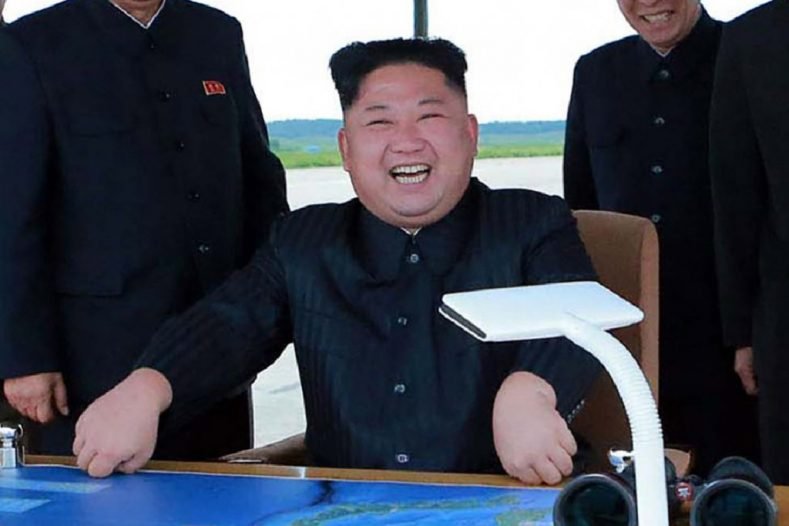Asia
North Korea cancels South Korea military deal, sends more weapons to border

North Korea stated on Thursday that it would strengthen its armed forces and deploy new weapons along its border with the South, a day after Seoul suspended part of a 2018 military agreement between the two Koreas in protest over Pyongyang’s launch of a spy satellite.
North Korea’s defense ministry stated in a statement broadcast that it would resume all military steps that had been suspended as part of the agreement with South Korea to de-escalate tensions near their shared border.
“From now on, our army will never be bound by the September 19 North-South Military Agreement,” the statement said. “We will withdraw the military steps taken to prevent military tension and conflict in all spheres, including ground, sea, and air, and deploy more powerful armed forces and new-type military hardware in the region along the Military Demarcation Line.”
Tuesday’s satellite launch was the North’s third attempt this year following two previous failures, and it came after a rare visit to Russia by North Korean leader Kim Jong Un, during which President Vladimir Putin offered to assist Pyongyang in building satellites.
According to South Korean officials, the latest launch most certainly entailed Russian technical help as part of an expanding collaboration in which Pyongyang has supplied Russia with millions of artillery shells.
Russia and North Korea have denied any arms transactions but have promised more collaboration, notably in the field of satellites.
In response to Pyongyang’s launch, South Korea halted part of the inter-Korean agreement on Wednesday and said it would immediately increase surveillance along the heavily fortified border with the North.
North Korea accused South Korea of abandoning the Comprehensive Military Agreement (CMA), saying Seoul will be held “wholly accountable” if an irreversible confrontation between the two Koreas occurs.
North Korea’s statement came hours after it fired a ballistic missile toward the sea off its east coast late on Wednesday. South Korea’s military said the launch appeared to have failed.
According to a representative for the US Department of State, South Korea’s move to suspend part of the CMA was a “prudent and restrained response,” citing North Korea’s “failure to adhere to the agreement.”
“The ROK suspension will restore surveillance and reconnaissance activities along the ROK side of the Military Demarcation Line, improving the ROK’s ability to monitor DPRK threats,” the official stated, referring to South Korea and North Korea, respectively, by the initials of their official names.
On Wednesday, South Korea restarted the use of crewed and un-crewed reconnaissance aircraft in the border area.
The suspended North-South accord was signed at a 2018 meeting between Kim Jong Un and then-South Korean President Moon Jae-in, and it was one of the most concrete results of months of diplomacy that had stopped by 2019.
Moon Chung-in, a Yonsei University professor who worked as President Moon’s special adviser during the discussions with Kim, said that while North Korea had not followed all aspects of the deal, the CMA’s death might increase the possibility of conflict along the border.
“Accidental clashes can escalate into full-blown conflict, including nuclear strikes,” he said. “We have every reason to try to reduce risk and tension, and instead, the South is going in the opposite direction.”
Critics claim that the agreement undermined Seoul’s ability to oversee North Korea and that Pyongyang violated it.
“The CMA was a good agreement in theory, since risk reduction and confidence- and security-building measures are beneficial to both sides by reducing the risk of tactical clashes and inadvertent escalation,” said Bruce Klingner, a former CIA analyst now with the U.S.-based Heritage Foundation.
However, with further measures stalled, the measure came at the cost of curtailing allied surveillance and military training and did not reduce the North Korean military threat, he said.
Although it has remained officially noncommittal, Washington has secretly urged Seoul to keep the CMA, according to Klingner.
North Korea announced the launch of its first spy satellite on Tuesday, prompting international condemnation for breaking United Nations resolutions prohibiting the use of technologies applicable to ballistic missile programs.
South Korea has said the North Korean satellite was believed to have entered orbit, but it would take time to assess whether it was operating normally.











